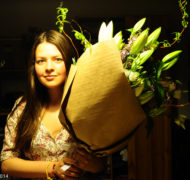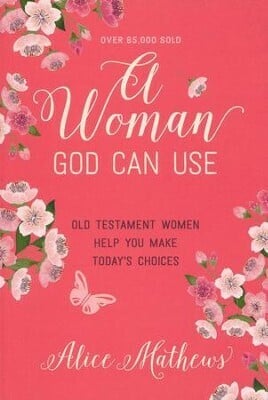Lady Wisdom in Street Clothes (Proverbs 31)
Article / Produced by TOW Project
We met Lady Wisdom in the opening chapters of the book of Proverbs. We also find her in the closing verses of that same book. Proverbs 31:10 asks, "A capable wife who can find? She is far more precious than jewels." Has Lady Wisdom been demoted to merely a "capable wife"? Unfortunately most translations from Hebrew into English obscure the implications of the original text. The word translated as "capable" is the Hebrew word chayil, which, as we have seen, means mighty, strong, valiant, and is used in the Old Testament 242 times, usually to describe soldiers or armies. In 2 Samuel 23 we learn that David's "mighty men" were chayil for their courage and strength. Here in Proverbs 31:10 it should read, "A valiant woman who can find? She is far more precious than jewels."
So what does wisdom look like in the life of this valiant woman? "She girds herself with strength, and makes her arms strong" (Proverbs 31:17). As an ezer woman, she knows it takes strength to act in wise ways, so she "exercises" her moral and compassionate muscles. Those moral muscles cause five things about her to stand out:
First, as an ezer chayil woman, she is trustworthy (Prov 31:11-12). Her husband trusts her because he knows that she has his best interests at heart. This extends to women in the workplace today. Do colleagues and bosses know that we have their best interests at heart? If we're not trustworthy, then little else really matters.
Second, as an ezer chayil woman, she is shrewd (Prov 31:13-18). She chooses her tasks and materials carefully. She thinks ahead, not acting impulsively or at the last minute. She's thoughtful about her work, considering that field carefully, then turning it into a profitable vineyard. She produces "merchandise that is profitable" - items she knows she can sell because they are well made.
Third, as an ezer chayil woman, she is generous (Prov 31:19-20). While English translations make these two verses look unrelated, the Hebrew language ties them together grammatically, telling us that this woman works (in this case, spinning and weaving) so that she has the means to help the poor and needy.
Fourth, as an ezer chayil woman, she is diligent (Prov 31:21-25). She provides fully for those in her care (even warm clothes in case of snow in the Middle East!). And she operates a successful cottage industry, making linen garments and sashes to sell.
Fifth, as an ezer chayil woman, she guards her tongue (Prov 31:26). The text tells us that "she opens her mouth with wisdom, and the teaching of kindness is on her tongue."
This is Lady Wisdom in action. In her we see that a wise person is trustworthy, shrewd, generous, diligent, and guards his or her tongue. While wisdom is personified as a woman throughout the book of Proverbs, her wise sayings are for men as well as for women. And though the translators in 31:10 refer to her as a “wife” (probably because the next verses refer to her husband), the Hebrew word is simply the one for “woman.” The conclusion of the book of Proverbs makes the concept of wisdom concrete so that we can see what wisdom looks like in action.
Our trustworthiness, shrewdness, generosity, diligence, and care in speaking are evidences of wisdom. They result from wisdom but they do not replace it. The root cause of wisdom can be found in Proverbs 31:30: "Charm is deceitful and beauty is vain, but the woman who fears the Lord is to be praised." The baseline for wisdom lies in our "knowledge of the Holy One," our "fear of the Lord." We stand in awe not only of God's power as sovereign over the cosmos, but also of God's amazing unending love for us. We cannot fathom that God really cares about us. But he does. In his very essence God is love. That love extends to each of us, no matter who we are or what we might have done. This is the gift of the fear of the Lord.
Our relationship with God gives us a different perspective on life. We know what matters. We know what lasts and what passes away. And we choose to live for what is eternal. We bring that perspective to every choice we make - whether or not to be trustworthy, to plan ahead and work with care, to show compassion, to pursue our goals with diligence, and to control our tongues. We choose whether or not to be wise.
Ella Wheeler Wilcox in her 1916 poem put it this way:
One ship sails East, and another West,
By the self-same winds that blow.
'Tis the set of the sails, and not the gales
That tell the way we go.
Like the winds of the sea are the waves of time,
As we journey along through life.
'Tis the set of the soul that determines the goal,
And not the calm or the strife.
It's the "set of the soul that determines the goal." Men and women, single or married, can all learn from Proverbs 31. In every part of your life, including your workplace, make it your goal to live wisely in light of what lasts forever. If you do, you will choose to be trustworthy, shrewd, generous, diligent, and in control of your tongue. But even more, you'll know the difference between what passes away and what lasts, and you'll choose to give yourself to what lasts for eternity. That's God's formula for living life with skill.
When we look back over the women at work in the Old Testament, we see all of them taking the long view, choosing to live for what ultimately matters. That's the choice God also gives each of us every day.







